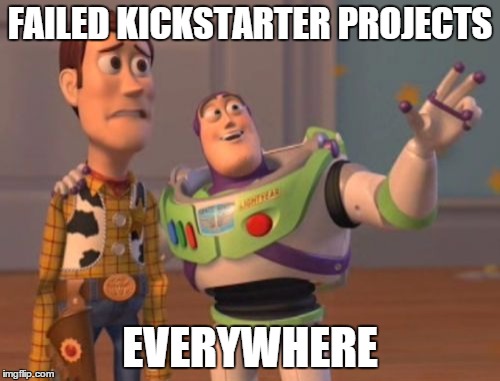My observation is that these days I'm not buying the products (primarily applies to digital goods) or services (over the Internet) anymore. Or rather: not products or services as we knew them few years ago:
-
I don't buy finished books, I buy early versions & get chapter after chapter as they are being written, edited, etc.
-
I don't buy finished games, I buy early access to beta version & get continuous updates (or DLCs)
-
I usually don't just buy application / on-line service, surely I get some instant access to current abilities, but I care more for the future potential (idea, roadmap, vision - call it whatever you want)
In other words - I buy promises.
Reasons are various:
- we're (we = consumers) getting more & more impatient, we don't want to wait until product gets all the features -> we want it while it's still being developed
- makers don't want huge investments up-front, they want to validate their product with actual customer interest (short feedback loop)
- if someone has a great idea, they want to materialize (& monetize) it ASAP, to minimize the risk of someone else getting ahead of him
I really appreciate that model & I use it really extensively. But I can't ignore the fact that this coin has two sides as well. And the dark side appears to manifest more & more frequently ...
More & more projects just don't finish
(not mentioning the fact that 'finished' may be hard to define in many cases)
Well, they just don't. Never. Ever. Game get stuck in early access stage without any improvement. Books get cancelled. Over-promised & under-delivered services deteriorate slowly & finally go off-line.

If their makers are honest enough to communicate the failure in straightforward manner, it's still somehow OK (keeping in mind, that you don't get your ROI anyway) - but in many cases:
- authors / sellers just clearly bullshit you and / or treat you like an idiot (for instance: some long-dead, abandoned early access games were offered with a discount in latest Steam Summer Sale)
- authors / sellers try to recover one failed crowdfunding campaign with another crowdfunding campaign
The crisis of trust is already perceptible - the hype of ultra-successful crowdfunding campaigns is over (of course, there are still some exceptions), newly introduced Steam return rules have already shaken the market as well.
Does it mean that crowdfunding model will die?
Of course it won't. But I'm sure it will evolve (the sooner the better) to secure the interest of the buyer. The first one to make it right (enable this new, improved model as a service), may be a new Kickstarter.
Pic: © shpock - Fotolia.com


